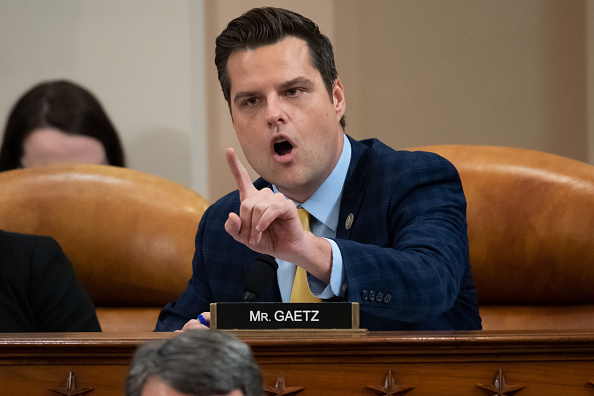Now that safe, effective vaccines for the COVID-19 virus are widely available in the U.S., healthcare providers have been preparing for patients to walk back through their doors.
The challenges they’ve uncovered are not what you might expect.
Providers can implement the “gating criteria” provided by federal agencies without breaking stride, but they also could face a high number of patients in poor condition because of delayed care, according to Kevin Devaney, a member of the Ohio-based law firm Eastman & Smith Ltd. Devaney is also a registered pharmacist and attorney who assists healthcare clients with compliance issues and business transactions.
Business processes also changed as a result of the pandemic, Devaney said. For instance, the days of healthcare providers using inventory management to control costs are probably gone for good. The pandemic taught everyone the value of a stockpile.
(Stay up to date on the latest in health care law with the Practising Law Institute’s upcoming offerings.)
The ‘Gating Criteria’
In early June, the Centers for Medicare and Medicaid notified healthcare providers who want to reestablish full service medical care of “gating criteria” developed by federal agencies. The criteria include determining whether Covid infection rates are low enough in the locale, the ability and capacity to respond to a surge, adequate testing capabilities, a program to test patients 24 hours before a non-emergent procedure, and adequate staffing. According to Devaney, for many healthcare facilities, measures like this were already in place.
“This is a fast-moving phenomenon. The whole gating stuff? We’re kind of past that.”
Devaney said that although the guidance offered by federal agencies was welcome and studied, it wasn’t all that necessary.
“My clients in the healthcare system, they have experience containing infectious disease,” he said. “They brought those lessons to bear. Basically, it’s disaster preparedness. They leaned on their collective wisdom.”
Their knowledge was hard-won. “This is like a natural disaster,” Devaney said “They know how to take care of a burn victim, but how about 200 burn victims flooding the emergency department at the same time? Same with the pandemic. They know how to handle one person with a viral infection. Now, make it 2,000.”
Of course, healthcare providers have good reason to become well-acquainted with federal guidelines and make sure they are in compliance. The reality that CDC or CMS recommendations can’t directly lead to lawsuits because they don’t create a private right of action doesn’t mean plaintiffs won’t use the guidelines to establish a standard of care. And woe to the healthcare provider who fails to meet the standard of care.
“Theoretically, if a hospital ignored gating requirements … would someone point and say, ‘They didn’t meet the standard’ and then sue under state negligence law? It’s likely.” Devaney explained. “I don’t think a hospital’s failure to meet a requirement in and of itself would lead to federal action, but it does establish a standard,” that can be used in state tort law.
Delayed Care, Sicker Patients
Many hospitals and other healthcare providers have returned to normal business operations, but the caseloads have yet to return to pre-COVID levels, Devaney said, at least judging by his clients. This can be a double-edged phenomenon.
The positive side is that, due to fear of infection, people aren’t going to the emergency department for relatively minor ailments.
“Cases like that aren’t sucking up ED resources,” he said. “People have used telemedicine and have established relationships with primary care physicians, and that’s a good thing.”
So, even though fewer patients are passing through the hospital doors, providers are reassured that people are getting the appropriate level of care.
“I think what has my clients concerned now is a continued reluctance for people to get into the system,” Devaney said. “When they show up they are going to be sicker. They are going to be forced to show up. Maybe someone has diabetes or some other conditions and they should be seeking care. This pent-up demand will come. That wave will eventually hit.”
Also, to provide care to these patients is going to be a lot more expensive, he said.
Healthcare systems and insurers often stress the importance of preventive care. The pandemic might have set back those efforts significantly. Devaney said his clients are worried the pandemic “means only when you get sick enough will you show up.”
Vaccines
One way to reassure people that it’s safe to go back to the doctor would be to make sure everyone in a given facility is vaccinated, but the healthcare profession has its share of vaccine-hesitant people.
“What we’re finding is a high percentage of health-system employees get the vaccine, but some won’t,” Devaney said.
Mandates could happen if more huge multi-state healthcare systems take that big first step. The Biden Administration’s announcement that federal employees either have to get vaccinated, or be regularly tested and wear a mask while on the job, could strongly also influence private sector employers, given that the federal government’s rule could affect two to 10 million people depending on its exact language. Of course, pushback against the rule is expected.
Nonetheless, “if market leaders come out and say, ‘Hey, we’re in the business of science. You have to get this vaccine,’ I think everyone will say, ‘Me too,’” Devaney said.
The big systems might be waiting for full-fledged Food and Drug Administration approval as opposed to the emergency authorization now in place, Devaney explained.
At the time this article was published, the FDA still had not fully approved the vaccines, despite the fact they’ve been in wide use for months thanks to emergency authorizations. A recent briefing in the New York Times explained why it matters, quoting a former surgeon general who said the absence of full approval “‘leaves schools, colleges, businesses in a legal quandary’” when it comes to mandates.
The lack of full approval also feeds “uncertainty and skepticism” among Americans who’ve been reluctant to get a shot, the briefing said.
But the FDA’s slow pace is not the only issue facing healthcare providers when it comes to vaccine mandates, Devaney said.
“Some health systems are reluctant to impose it because they have a healthcare staff shortage,” he said. He describes a scenario where a provider mandates the shot only to lose a big group of vaccine skeptics from the vital nursing pool.
“My prediction is that eventually there is going to be a requirement. Probably after it’s approved. Others will latch on if every health system in town requires it.”
The Business Effects
Perhaps surprisingly, healthcare providers are not waiting anxiously for a return to full-service care to save them from insolvency. While Devaney witnessed some failures, he said overall, 2020 was not as bad as expected.
“I had a client with an ambulatory surgical center that shut down. Early on, there was a lot of real and justified consternation,” he said. “Providers we’re saying, ‘We’ve never done this before.’ Brutal conversations were held between large physicians’ groups saying we can’t meet our financial obligations.”
Fortunately, banks turned out to be open to accommodation.
A healthcare provider might have said, “‘Okay, for the next three months we’re not going to pay you,’” Devaney explained, “‘and then we’ll tack those payments onto the end of the loan.’ This was done on a month-by-month basis in the first quarter of [the pandemic], then it smoothed out and people regained their footing.”
Devaney also said the Payroll Protection Program “helped tremendously.” Part of the Coronavirus Aid, Relief, and Economic Security Act passed in March of 2020, the PPP program offered loans to cover up to eight weeks of payroll.
That’s not to say everything was business as usual. Devaney reported that the pandemic changed supply-chain management. These changes are likely to stick, even as the country has its sights on the post-pandemic provision of care.
“Hospitals are keeping on hand far more supplies than they ever did,” Devaney said. For example, “it used to be they would get [surgical] gowns for the week on Monday and use them up, part of this idea of inventory management to keep costs down.”
Now, hospitals are buying more than they can use, after difficulties early in the pandemic.
“I’m not hearing now that people aren’t getting what they need, just that they want to have a cushion,” Devaney said. “They want to say, ‘Well, we’ve got plenty. We can ride it out.’”
Elizabeth M. Bennett was a business reporter who moved into legal journalism when she covered the Delaware courts, a beat that inspired her to go to law school. After a few years as a practicing attorney in the Philadelphia region, she decamped to the Pacific Northwest and returned to freelance reporting and editing.










 Iffy Ibekwe is the principal attorney and founder of
Iffy Ibekwe is the principal attorney and founder of 








 Kathryn Rubino is a Senior Editor at Above the Law, host of
Kathryn Rubino is a Senior Editor at Above the Law, host of